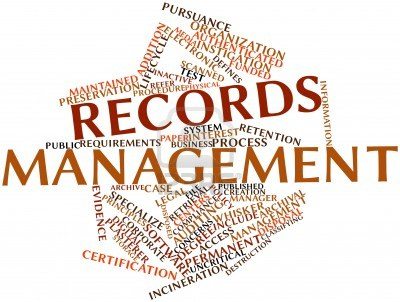Is there a future for information managers?
Records and information managers (RIMs) belong at the heart of an organisation’s information management strategy. They are responsible for knowing what information exists, who has or has had access to it, where it is now, how safe it is and when it’s time to let it go. These activities are critical for protecting information and enabling organisations to make the most of it.
But the world around the RIMs is changing, and their role and influence is changing with it. Today, information exists in multiple formats, most of them digital. As a consequence, responsibility for the management of digital information is often given to those in IT.
A recent European and US study[i] by Iron Mountain explored what this rapidly evolving information landscape could mean for RIMs and how prepared they feel for the demands that lie ahead. The results reveal a profession that is going through significant and irreversible change; one that could be at risk of being marginalised if action is not taken.
The study found that half (49 per cent) of European RIMs say their role and responsibilities have changed significantly over the last five years. When it comes to the future, RIMs and their business leaders both agree on the key trends and skills priorities, but also acknowledge that there is currently a skills shortfall in some of the most important areas.
The study asked RIMs and their business leaders to identify the single most critical skillset that RIMs can offer the organisation over the coming years. The resulting list shows that the need to extract greater benefit from information outranks process and technology-based skills.
Topping the list is the ability to add value to information through insight and analysis, chosen by 28 per cent of European RIMs and 30 per cent of their employers. In second place, lies the need for a strategic outlook and awareness of wider business goals, chosen by 23 per cent of RIMs and 29 per cent of business leaders.
These results show that RIMs clearly understand the need for business-focused skills. They also suggest that, for many of them this is the area where they are most likely to fall short. Around 40 per cent of RIMs and their employers feel that there is currently a gap in strategic outlook and the understanding of wider business goals; while 45 per cent of business leaders and 38 per cent of RIMs say the same about their ability to add value through insight and analysis.
Third on the list are compliance and security skills – both vital in an increasingly knowledge-driven, cloud-based and regulated world in which information is at risk of disclosure as a result of malicious intent or human error. A fifth of RIMs (21 per cent) consider these to be the most important skills, compared to 12 per cent of business leaders, with around a third feeling there is room for improvement in current skill levels.
The ability to communicate effectively across teams and departments is taken seriously by both sides, with 13 per cent naming this as their top priority, and a third considering that current capability leaves something to be desired.
Finally, the ability to make information easily accessible is most important to six per cent of both groups; while an understanding of digital transformation matters more to RIMs (17 per cent), than to business leaders (four per cent).
Overall, this list suggests that the fundamental principles of information management as practised by RIMs hold firm, and will continue to hold firm, but are no longer enough on their own. To stay relevant, RIMs need to add value to the information in their care, with analysis, insight and understanding that reflects the latest business needs.
RIMs need to reinvent themselves as business- focused, integrated, multi-tasking, collaborative team players that can help the company to extract the full benefit from information. They need to take charge of their own destiny and development needs and make themselves and their contribution more visible to senior management and colleagues.
Business leaders have a role to play too: they need to rediscover their RIMs, support their development and foster a culture across the organisation where the role and contribution of records and information managers is better understood and more highly valued.
[su_box title=”Sue Trombley, Managing Director of Thought Leadership, Iron Mountain” style=”noise” box_color=”#0e0d0d”]
Iron Mountain Incorporated (NYSE: IRM) is a leading provider of storage and information management solutions. The company’s real estate network of 64 million square feet across more than 1,000 facilities in 36 countries allows it to serve customers around the world. And its solutions for records management, data backup and recovery, document management and secure shredding help organisations to lower storage costs, comply with regulations, recover from disaster, and better use their information for business advantage. Founded in 1951, Iron Mountain stores and protects billions of information assets, including business documents, backup tapes, electronic files and medical data.[/su_box]
The opinions expressed in this post belongs to the individual contributors and do not necessarily reflect the views of Information Security Buzz.



